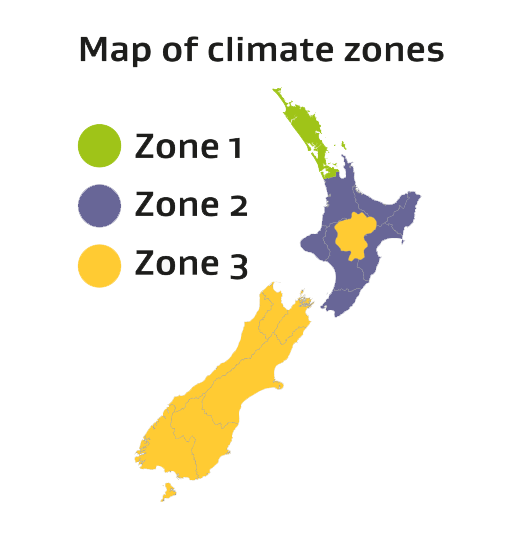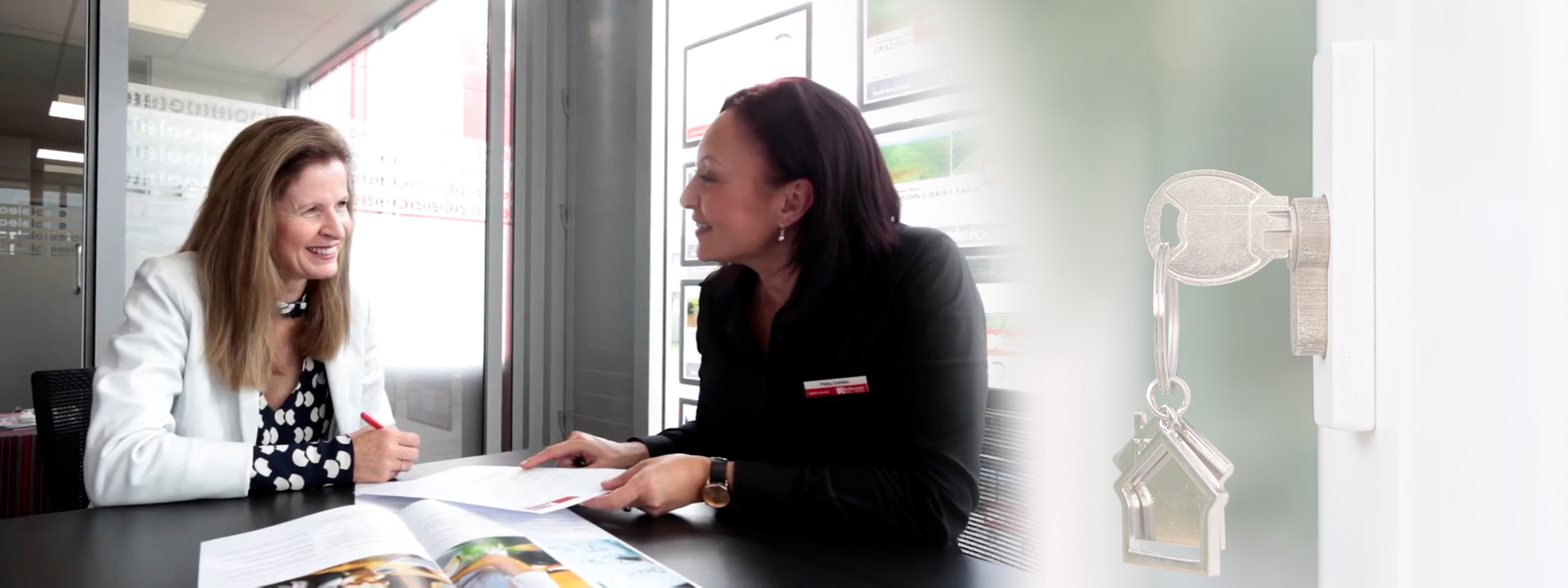Most common FAQs from landlords
Do you have questions about property management?
Landlords often reach out to us to ask about the process of renting a property out and we’ve noticed that some questions come up a lot more frequently than others. To simplify the process, we’ve answered them all in this article.
See our advice below to streamline your property management experience and gain peace of mind.
1. How much is a property management commission?
A property manager typically charges a fee based on the weekly rent amount. On top
of that, most also charge extra for certain tasks or services. At McDonald Real
Estate, we prefer to charge a flat rate of the weekly rent received. In some cases, we
may negotiate a lower fee, such as to owners with more than one rental property or
properties that attract a high rent. Our fee covers everything listed below as a
standard inclusion and not an extra cost:
- Photos
- Appraisals
- Routine inspections
- Paperwork management
- Dealing with disputes
- Preparation for and attendance at tribunal hearings
- Other charges that are passed on by other management companies.
We also handle all relevant communications so that you have peace of mind
knowing everything is taken care of. We feel a transparent fee lets you know there
will not be any hidden costs or charges for the services mentioned above.
2. What are the Healthy Homes requirements?
Since July 2021, all new or renewed tenancy agreements are required to comply with the Healthy Homes standards within 120 days of any new or renewed tenancy. The final date to look out for is the 1st of July 2025 when all rental houses must fully comply with the standards. We can arrange your Healthy Homes reports which are outsourced and are currently $200 including GST. The standards cover the following 5 categories:
Heating
Your rental home must have at least one permanent heating device in the main living room and it must be capable of warming the rooms to at least 18°C. Use this heating assessment tool to determine if your heating needs to be upgraded. Read the full standard here.
Insulation
Insulation requirements are measured by the R-value, which is a measure of thermal resistance. The minimum R-values vary across three New Zealand climate zones.
Zone 1 – ceiling R2.9 and underfloor R1.3
Zone 2 – ceiling R2.9 and underfloor R1.3
Zone 3 – ceiling R3.3 and underfloor R1.3
Read the full standard here.
Ventilation
Rental homes must have openable windows in the living room, dining room, kitchen, and bedrooms. Kitchens and bathrooms must also have extractor fans or an acceptable continuous mechanical ventilation system. Read the full standard here.
Moisture ingress and drainage
Rental properties must have sufficient drainage for stormwater, surface water, and groundwater. Houses with an enclosed sub-floor space must also have a ground moisture barrier. Read the full standard here.
Draught stopping
Landlords must eliminate any unnecessary gaps causing draughts in walls, ceilings, windows, skylights, floors, and doors. Additionally, all unused open fireplaces must be sealed to prevent draughts. Read the full standard here.
You can read all the details of each standard in our full blog explainer about the Healthy Homes Standards or download our free Healthy Homes Guide.
3. What is a ground moisture barrier?
A ground moisture barrier protects against rising dampness and mould and is a requirement for all rental properties with an enclosed subfloor area. They typically consist of a polythene sheet. A ground moisture barrier must:
- Be a polythene sheet installed according to section 8 of New Zealand Standard NZS4246:2016
- OR have a vapour flow resistance of at least 50 MNs/g and be installed by a professional installer.
If you want advice about your particular house and requirements, reach out to your local property management expert.
4. How do we select tenants?
The tenant selection process is critical as it determines how successful the tenancy will be. At McDonald Real Estate, we follow a strict screening process to ensure your prospective tenants are easy to communicate with and pass the following criteria:
- A tenancy tribunal check.
- Contacting references.
- Check suitability for the house
- Check the ability to pay rent.
- A full background check.
- A credit check if required (this will be charged to the owner as it is outsourced - $10).
For more advice, read our helpful articles on how to attract the most suitable tenants and the 10 things tenants want in a rental property.
5. Who is responsible for the grounds maintenance?
The grounds maintenance of a rental property is a responsibility shared by the landlord and the tenant.
Tenant responsibilities
All New Zealand tenants must take responsibility for the following:
- Keeping the property reasonably tidy (often includes mowing the lawn, changing pool filters, section care, and weeding the garden).
- Alerting the landlord to repairs.
- Managing hazards where possible.
- Leaving the property in a clean and tidy state at the end of the tenancy.
Landlord responsibilities
Landlords are typically accountable for all major outdoor property maintenance, such as:
- Gardens (pruning trees, shrubs, and hedges, removing green waste).
- Gates, fences, and drainage.
- Cleaning guttering.
- Pool maintenance.
If in doubt, refer to your Tenancy Agreement and the Residential Tenancies Act. Landlords must pay for all the repairs accrued through natural wear and tear so it’s a good idea to budget for this each month from the tenant's rent. At McDonald Real Estate, we offer a maintenance management fund to cover this.
6. What are the costs involved in renting out a property?
When renting out a property, you will need to budget for the following:
- Regular maintenance.
- Repairs and unplanned maintenance.
- Work to achieve Healthy Homes compliance.
- Landlord insurance.
- Potential gaps between tenants.
- Potential rent arrears.
By setting aside money for these potential costs, you can protect your investment. If you hire McDonald Real Estate as your property management company, they can set aside an agreed amount of the monthly rent money as a fund for maintenance. They will keep clear records of all the costs and payments.
7. What if a tenant doesn't pay their rent?
If tenants don’t pay rent on time, it is a breach of the tenancy agreement and the Residential Tenancies Act. To avoid rent arrears, we financially vet all tenants before signing a contract with them. If missed payments do happen, we have a careful process to follow up and collect the payment.
Firstly, we check with the tenant to see if they are aware of the missed payment and discuss how they plan to bring the rent up to date. If they’re having difficulty, we may give them the option to add an amount of the debt to their regular rent until they’ve paid it off.
If we can’t reach an agreement with the tenant, we send a notice to remedy and use another option of sending them legal notices that if they miss their rent three times within 90 days we apply to the Tenancy Tribunal for termination of the tenancy. If they get to 21 days in arrears we also apply to the tribunal to end the tenancy. We like to work with tenants to keep their rent up to date and McDonald Real Estate has very low arrears percentages over a very large portfolio.
8. What are the tenants’ responsibilities vs the landlord’s responsibilities?
According to the Residential Tenancies Act, the responsibilities of tenants and landlords are as follows:
Tenant responsibilities
- Pay rent on time and pay for outgoing utilities (electricity, gas, and internet).
- Keep the property reasonably clean and tidy.
- Alert the landlord immediately of any damage or repairs.
- Use the property for residential purposes rather than commercial activities.
- At the end of the lease, they must leave the property clean and tidy, leave keys with the landlord, and leave behind all items supplied with the tenancy.
Landlord responsibilities
Landlords cannot seize the tenant’s personal property for any reason or interfere with the supply of any services to the premises (unless necessary to complete repairs).
- At the start of the tenancy, you must ensure the property is in a reasonable condition and that it meets all relevant building, health, and safety standards.
- Allow the tenant quiet enjoyment of the property.
- Inform the tenant if the property is for sale.
- If you are out of New Zealand for more than 21 days, you must appoint an agent.
- Correctly handle any abandoned goods.
You can read more about your rights and responsibilities on the Tenancy Services website.
9. How do I get rid of undesirable tenants?
If you have tenants you aren’t happy with, you do not have the right to give 90 days notice to vacate. However, if the tenants have breached their tenancy agreement and do not desist or remedy it, your property manager may be able to take action.
90 days' notice to vacate
There are only a few reasons that you can give a tenant 90 days' notice to vacate, including:
- You are putting the property up for sale within 90 days of the vacate date.
- You have sold the property and the new owner requires it to be empty.
- You plan to complete major renovations causing the tenant to be without necessary facilities and their health and safety to be compromised.
- You are changing the property to a commercial premise for at least 90 days.
- You want to demolish the property within 90 days of the tenancy ending.
63 days' notice to vacate
You can give 63 days' notice for the following reasons:
- You need the house for a family member to live in as their main home for at least 90 days.
- One of your employees is going to live in the house and you had already specified this would happen in the tenancy agreement.
- The tenancy agreement states that the Ministry of Education is the landlord and the board of trustees requires the property.
10. How long do I have to get my property compliant?
Since 1 July 2021, all rental properties must comply with the Healthy Homes standards within 120 days of a new or renewed tenancy. From 1 July 2025, all private rentals must comply with the Healthy Homes standards.
Landlords that fail to meet their obligations under the Healthy Homes standards are in breach of the Residential Tenancies Act 1986 and could be liable for exemplary damages of up to $7,200. To avoid this, speak with our property managers for advice tailored to your rental property.
Do you have more questions that aren’t answered here? See our other blog articles for more information and industry advice, or speak with our team today.






